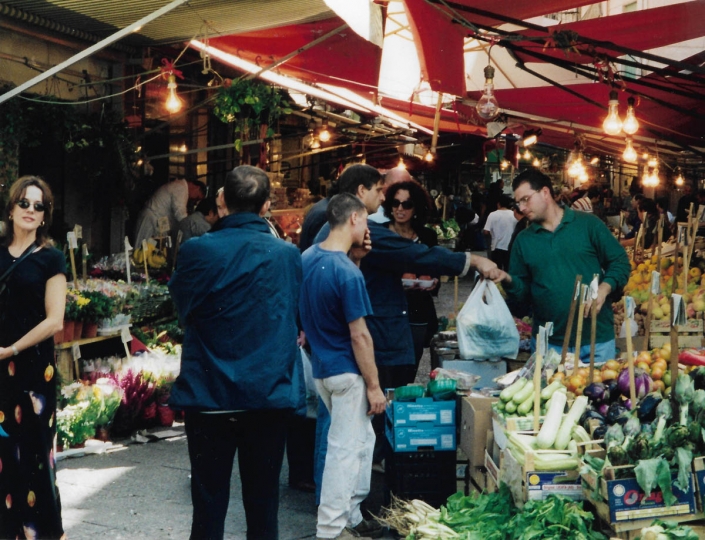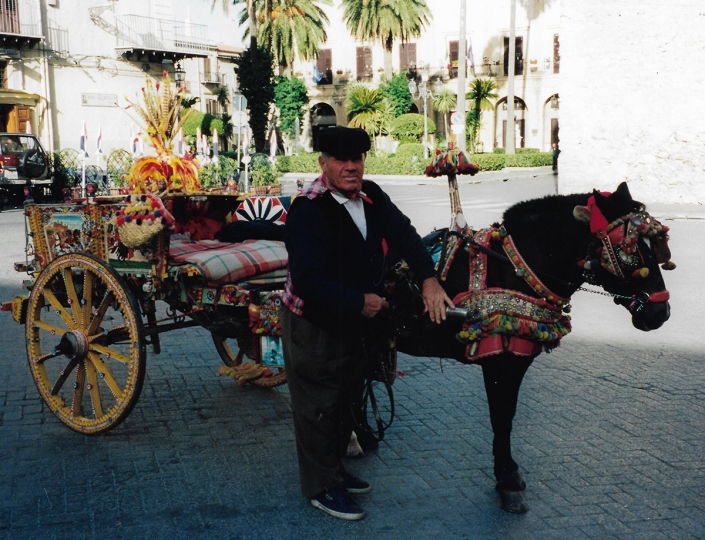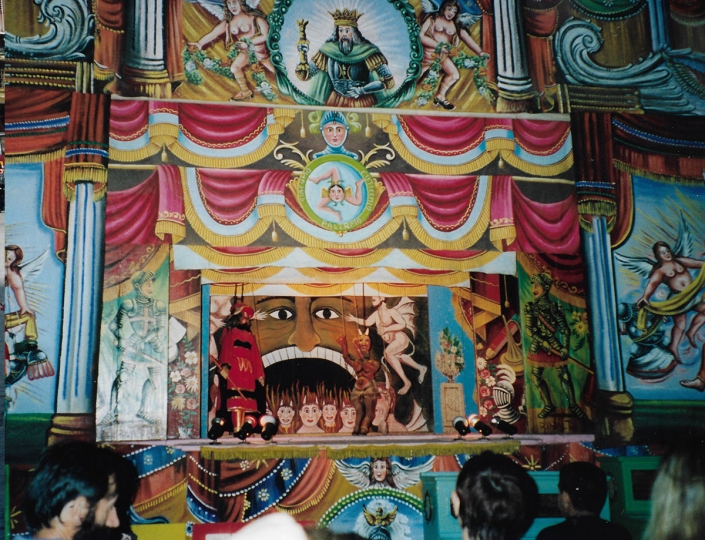Once ruled by the Mafia, now tourists make up the ‘mob’ in theatrical Sicily
LOOKING for a guaranteed assault on all of the senses that also offers a quick and easy exit to the mountains or sea when it reaches overload proportions?
Then head for Sicily and the glorious, theatrical city that is Palermo.
Today, this bustling, magical place which has cleaned up its image big time, is attracting more and more enthusiastic visitors following a major crackdown on crime and a massive drive, prompted by civic pride, to win back those who were previously giving it a wide berth.
The city is easily one of the most exciting in the Med and multi-faceted in its attractions. Here, you’ll find lively ancient street markets and history in abundance to reflect its turbulent past and mix of cultures and multi-layered influences.
We spent three days exploring all it had to offer. I can’t wait to go back.
Thanks to that background that gives it such a distinctive character, eating out, the almost old-world shopping experience and people combine to make this a destination with a unique sense of place.
The older quarters may still be covered in the grime of years of neglect, but everywhere there are signs of a major clean-up operation underway, and that, in itself is a metaphor for what’s going on too, behind the scenes.
The opera house is a stunning example of what’s been happening as the city fathers wrestled control back from the godfathers who held such a firm grip on everything from street vendors to major civic building contracts down the years.
The Teatro Massimo, with its six levels of boxes all stacked up in a huge horseshoe shape, had disgracefully lain in a semi-derelict state for twenty five years as differing factions argued about who should get a share of the spoils of the proposed renovation programme.
Sick of the wrangling, the city council stepped in and declared they would take on the restoration job themselves.
Fully restored
Visit the fully restored theatre – one of the finest in the whole world – and you’ll get a true feeling for the renaissance that’s currently underway.
In this city which fairly bristles with treasures galore, it is possible to escape into another world and time zone just by strolling through the myriad of back streets.
The island itself has been a melting pot of humanity for centuries having down through the ages been in the hands of Greek, Arab, Norman, French, Spanish and Roman conquerors, all of whom left their distinctive – and spectacular – marks on the art, architecture, culture and lifestyle.
The Palantine Chapel nestling inside the Palazzio dei Normani rates as one of the most magnificent mosaic-encrusted religious buildings of the 12th Century.
Even when packed to capacity, the admiring hordes – stunned by the sheer impact of its ‘wow’ factor – talk in whispers, overawed by the sumptuous splendour of the walls, archways and ceilings. A visit to one of the old-time puppet theatres is another special experience where hand-painted marionettes
the size of five-year-olds are brought out nightly by the same families who have been running these extravagantly entertaining shows for generations.
Palermo’s historical ties with the Arab world and its close proximity to North Africa can be sensed by the welcome bustle of the street life of the city’s ancient centre and nowhere is this more evident than in the markets. Dating back centuries as trading arteries, the vibrant and atmospheric bazaars share many characteristics of the souks and provide a level of voyeurism that amounts to sheer street theatre. The powerful aroma of sizzling street food hangs in the air and vendors are kept busy all day and into the night.
An all-out visual feast, the best of which, the Vucciria and Ballaro, lay on displays of fresh produce from flowers, fruit, vegetables, herbs and spices to cheeses, fish, game and other exotic delights.
Local delicacies
Catch a cheap and cheerful lunchtime snack as stallholders take a break in any of the ancient bars with their local delicacies such as octopus sandwiches, carmelised shallots and onions, or succulent slow-cooked beef (Carnelessa Bolito) served up with steamed chard and potatoes.
If your interest extends to antiques, junk and bric-a-brac, check out the market at Piazza Peranni just behind the Bishop’s Palace off Corso V. Emmanuele.
One of the great benefits of picking Palermo as a holiday base is its close proximity to both the sea and the mountains.
There are many fascinating attractions just outside the city boundaries too.
Twenty minutes from the centre lies the beach resort of Mondello with its small working harbour and pristine champagne-coloured beach.
At weekends, it is teeming with young couples promenading in the ritual get-together they call ‘passeggiata’.
With fresh-as-it-comes fish being landed under their noses, restaurateurs and cafe owners are quick to capitalise. There’s everything from sea bass, lobster and squid to baby octopus, red mullet, mussels and oysters all laid out on beds of crushed ice to tempt in passers-by.
Up-market Mondello is where the well-heeled Sicilians have their homes.
As result, it has a clean-as-a-whistle feel and even the air which wafts in over the seafront bars and eateries from the bay has that rarely found fresh, appealing quality that can often be lost in busier more heavily-polluted resorts.
Just twenty minutes away by public transport is another “must-see” – the hilltop town of Monreale – famous for its Byzantine mosaics, locals with colourfully hand-painted donkey carts and Benedictine cloisters from which to gaze right out over the whole of the city itself in a panoramic view which spreads far off to the coast.
There’s much, much more to explore in this most exotic of destinations. Do remember that, being so close to North Africa, it can sizzle to an uncomfortable level in high summer.
More info here: www.visitsicily.info






